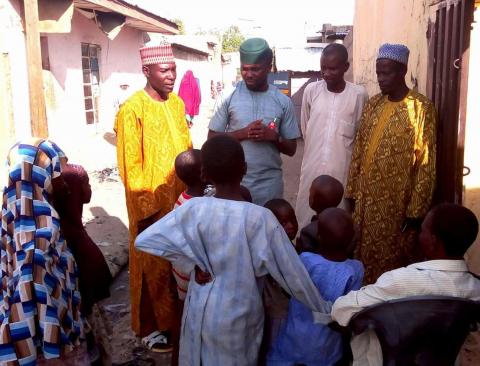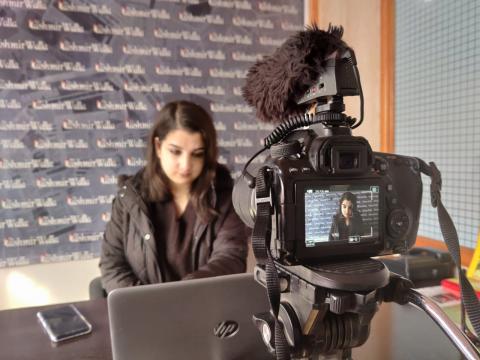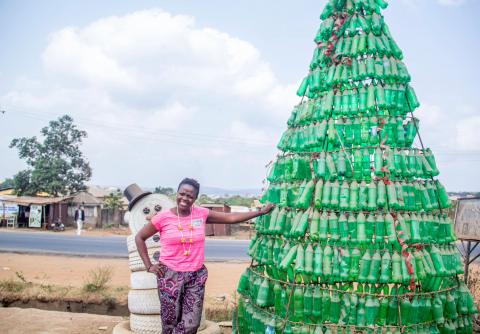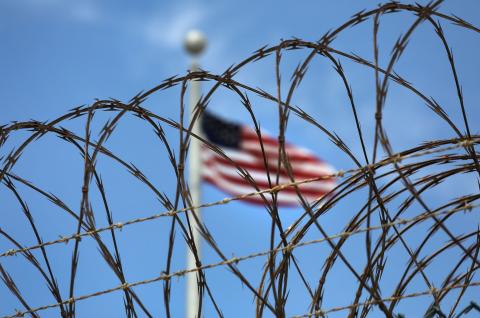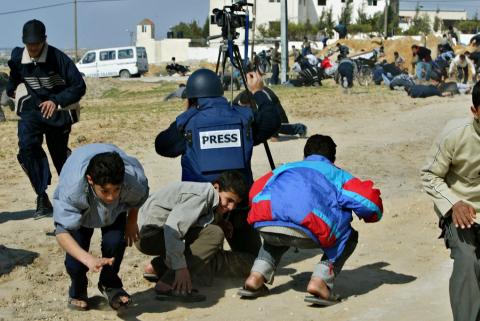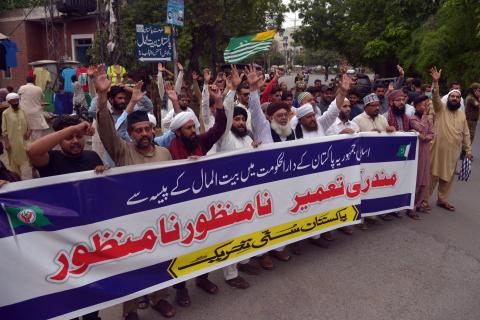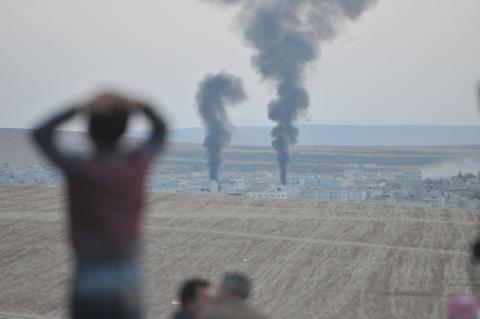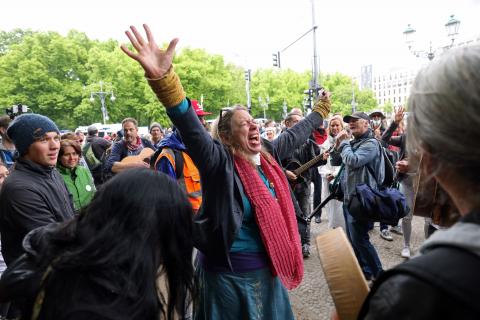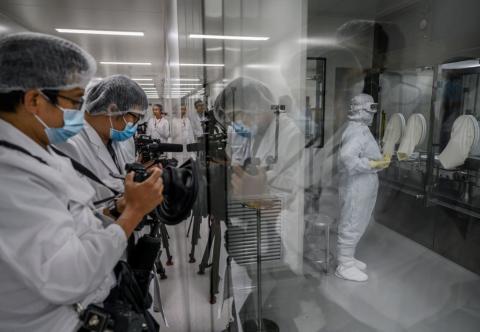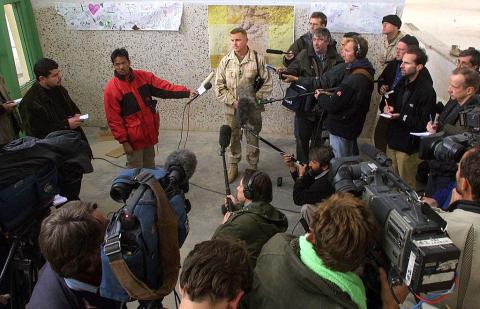Al Jazeera Journalism Review
‘A sense of belonging has been taken away from us’ - the closure of the Kashmir Press Club
THE LONG READ: The closure of the Kashmir Press Club in January this year has come as a major blow to independent journalists in the troubled region who relied on it for camaraderie, respite and a ‘place to share ideas’

Reporter’s Notebook: Inside Europe’s largest brothel
While covering a story about a Spanish proposal to outlaw middlemen involved in prostitution, AJE senior correspondent Natasha Ghoneim and her team came up against a wall of silence, but managed to get a story nevertheless
The irony of fake news - sometimes it serves to highlight injustice
Last week, the image of a blonde-haired Palestinian girl standing up to an Israeli soldier was wrongly credited as an image of a Ukrainian girl confronting a Russian soldier. The intention was to garner sympathy for Ukraine - instead, it had a rather different outcome

Examining the imagery of women during wartime
ANALYSIS: Some images of women in Ukraine have gone viral in the past week. But what do these specific images add to the narrative surrounding the Russian invasion and what of the women who don’t fit the media image of the “ideal” female?

Investigating racist conviction laws in America - and seeing a man freed after 25 years
REPORTER’S NOTEBOOK: How a team of journalists spent nearly a year investigating the conviction and 25-year imprisonment of Brandon Jackson and then watched him walk free

‘Heroes’ and ‘worthy’ refugees - the hypocrisy of Western media over Ukraine
While news anchors marvel at how refugees from Ukraine are ‘just like us’ and glorify women taking up Kalashnikovs against Russian invaders, we compare their treatment with that of Syrian and Afghan refugees, and Palestinian resistors

‘You must know how to haggle!’ - racism in journalism starts in the classroom
Even though I didn’t choose to, I quickly became that one ‘annoying’ journalist of colour who had to keep mentioning racism in my journalism school. It was humiliating and exhausting, to the point of nearly quitting

Reporter’s Notebook - on the trail of Boko Haram
For one journalist in Nigeria, covering the activities of the militant Islamist group, Boko Haram, primarily means documenting the horrifying stories of its victims, sometimes to his own cost

Avoiding mistakes in the newsroom - verifying video from external sources
When video of Osama Bin Laden surfaced around the time of the September 11 attacks on New York in 2001, many people questioned its credibility. We examine how Al Jazeera verifies the authenticity of outside materials, much of it produced by 'citizen journalists'

Branded a ‘troublemaker’ and summoned by the police - life for female journalists in Kashmir
The repeal of Kashmir’s autonomous status by the Indian government, combined with a crackdown on press freedom, has made life extremely tough for women journalists in the region.

Making the world a better place - one camera ‘click’ at a time
REPORTER’S NOTEBOOK: How one photojournalist in Nigeria takes a ‘solutions-based’ approach to the images he captures.
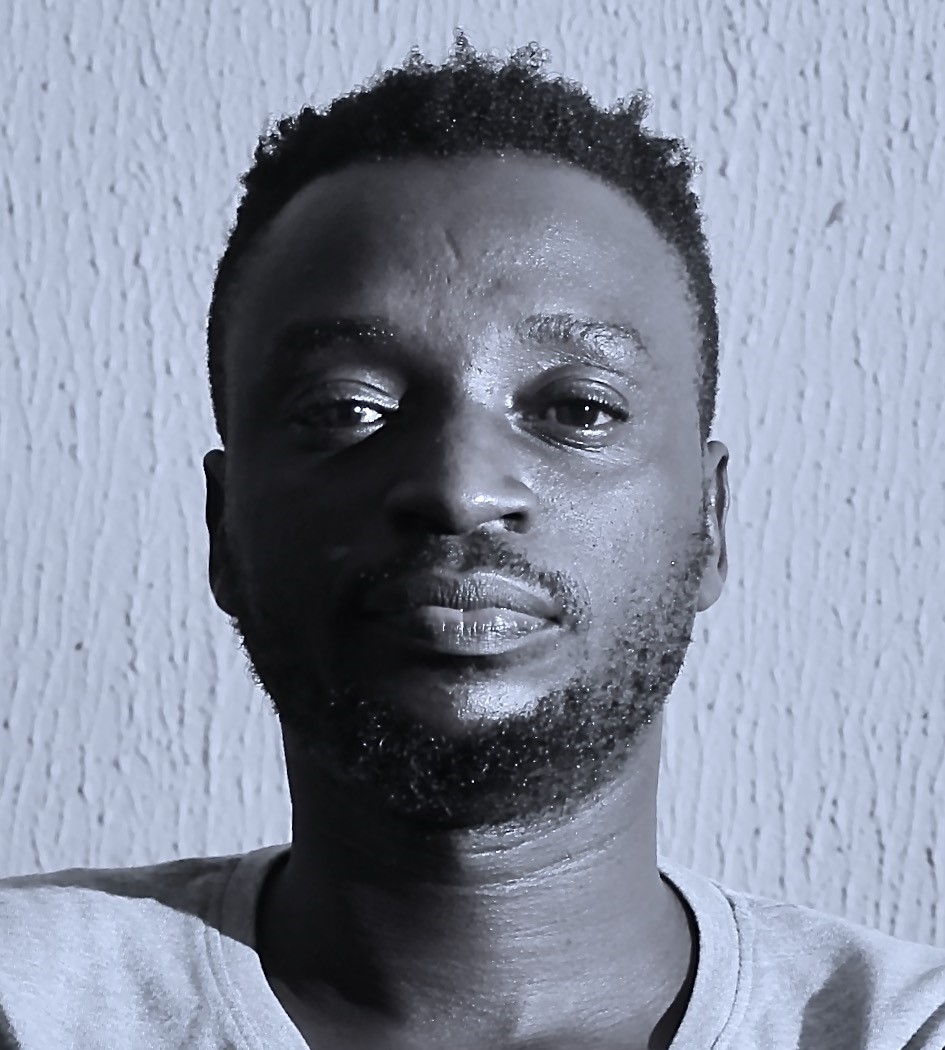
Human rights lessons from a ‘terrorist’ journalist
It has ever been the case that when a journalist reports crimes by a despot, militant group or even, these days, a so-called democratic state, he is liable to be labelled a criminal.

Deploying news teams to dangerous places - what media organisations need to know
Reporting from the heat of battle or covering the tragedy and desolation of a humanitarian disaster can be perilous, but the risks are less if media professionals are prepared for the task.

How should we talk about Pakistan?
How do journalists report accurately about a country which suffers sectarian violence without reinforcing Islamophobic tropes?

When war is on your doorstep - the impossible road taken by a citizen journalist
REPORTER'S NOTEBOOK: The 11-year war in Syria has shone a light on the struggles of local journalists who are often dismissed as ‘mere’ activists and whose plight is largely ignored by the international community.

'Both sides’ journalism does not always show us the truth
Journalists are bound to tell the truth, not give platforms to positions which are demonstrably wrong in a misguided attempt to be ‘impartial’.

Forget superheroes - science journalists will save the world
Science journalism is not just about test tubes, it's about everything. And the past few years have shown that the world needs science journalists more than ever before.
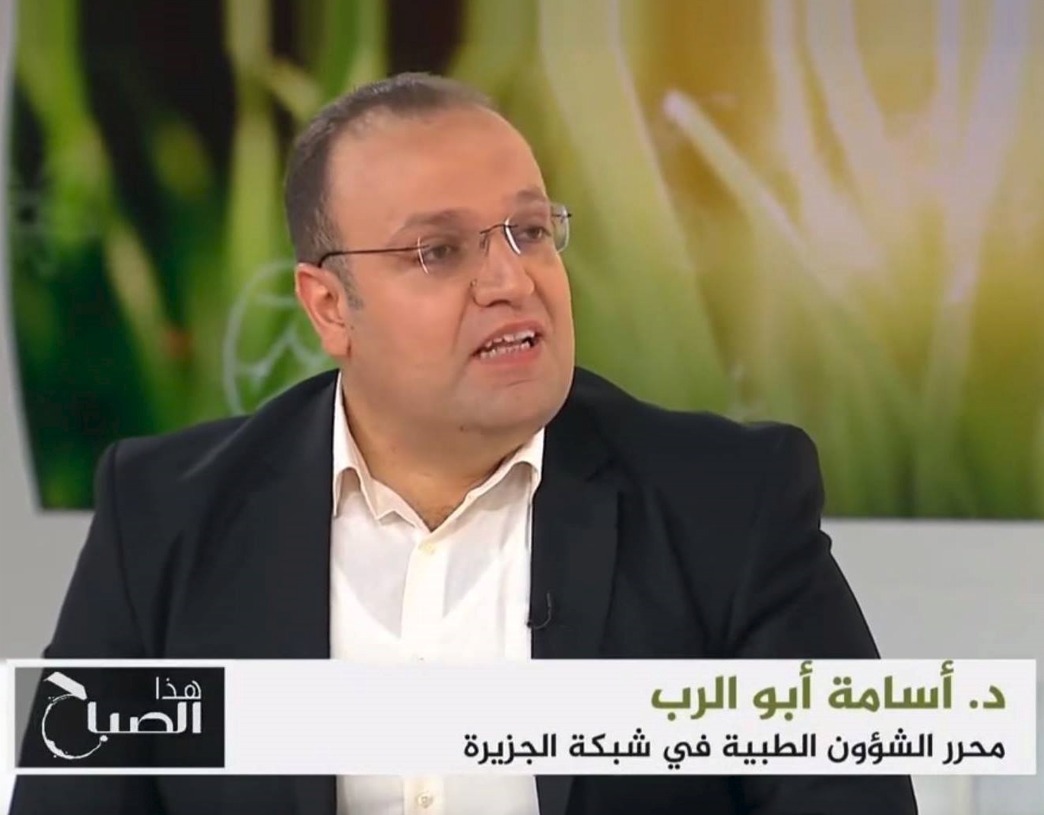
Can you spot the fake news? Steering clear of conspiracies in science journalism
The world is full of fake news, nowhere more so than when it comes to scientific issues, so science journalists must develop a keen sense of scepticism. We look at why it’s so important to keep a clear head and search out the facts.

How to do science journalism - and do it right
THE LONG READ: With a new variant of COVID-19 sweeping the world, putting healthcare systems under strain, good science journalism has never been more important. This is our guide to how to report responsibly, accurately and ethically on scientific issues.

‘Kill the rented journalists’ - the reality of life for local journalists and fixers left behind in Afghanistan
THE LONG READ: The recent takeover of Afghanistan by the Taliban shines a light on the often exploitative relationship between Western foreign correspondents and the Afghan ‘fixers’ they leave behind.
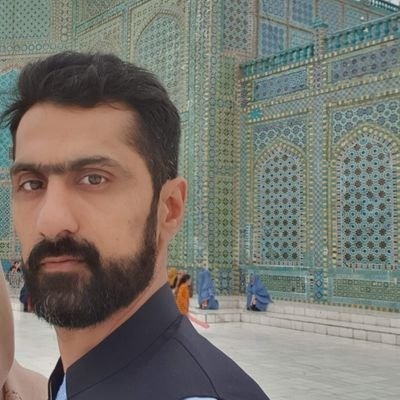
Investigative Journalism in the Digital Age
Data-driven journalism is an increasingly integral part of investigative reporting. We look at the ways to put it to best use.

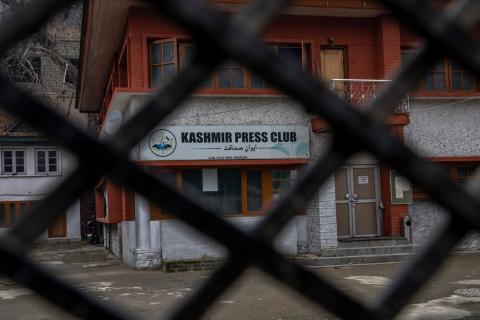

![A woman and a child wait for a call to cross the passport control after arriving in a train from Kyiv at the Przemysl main train station on February 27, 2022 in Przemysl, Poland. [Omar Marques/Getty Images]](/sites/default/files/styles/large/public/ajr/2022/ResizeGettyImages-1373177290.jpg?itok=lBVhKUQ6)

